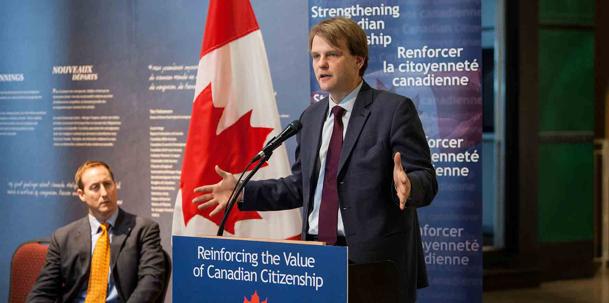
The world is in the midst of a refugee crisis — the likes of which we haven't seen since the second World War.
That's the message in a new report from the United Nations that asks developed countries like Canada to welcome more of the world's displaced families.
The report, released in conjunction with International Refugee Day, claims that, thanks to crises in parts of the Middle East and Africa, 51.2 million people were forcibly displaced at the end of 2013, fully 6 million more than the 45.2 million reported in 2012.
"The international community has to overcome its differences and find solutions to the conflicts of today in South Sudan, Syria, Central African Republic and elsewhere," UN High Commissioner for Refugees António Guterres said in a statement.
"Non-traditional donors need to step up alongside traditional donors. As many people are forcibly displaced today as the entire populations of medium-to-large countries such as Colombia or Spain, South Africa or South Korea."

Historically, Canada has been one of the most generous countries in the world in accepting refugees for permanent residency and citizenship.
2013 was no different.
"During the year, a total of 98,400 refugees were admitted by 21 resettlement countries, according to government statistics," notes the report.
"These included the United States of America (66,200), Australia (13,200), Canada (12,200), Sweden (1,900), and the United Kingdom (970)."
Most recently, these countries have resettled 6,500 Bhutanese refugees, about 18,000 Iraqis and are in the midst of resettling more than 1,100 Syrians.
Regardless, opposition parties and groups like Amnesty International and the Canadian Council for Refugees continue to complain that Canada isn't doing enough — especially for the 9 million plus Syrian refugees.

Recently, Minister of Citizenship and Immigration Chris Alexander incorrectly claimed that Canada is “at the top of the list” in terms of welcoming Syrian refugees globally. Thus far, the Government has set a target of only 1,300 refugees, and is relying on private individuals to sponsor 1,100 of those," Liberal MP Marc Garneau penned in a March 2014 op-ed.
[ Related: Syrian refugees: Canada urged to take in 10,000 by 2016 ]
"By contrast, other countries, such as Sweden, are doing more. Sweden already has welcomed over 14,000 refugees, and has given them permanent status.
"Ultimately, Canada has an opportunity to demonstrate once again its leadership and its generosity, as it did in the 1970s, when we accepted thousands of Ismaili Muslim refugees and helped them to begin new lives in our country, to which they have made an important contribution."
Asylum Claims
No discussion of refugee policy would be complete without touching on the subject of asylum claims.
In addition to government-assisted or privately sponsored refugees, there are thousands of individuals who come to Canada each year seeking asylum.
While asylum claims in the EU and Australia are ballooning, those types of refugee claims in this country are actually dropping.
The government says the drop is a result of their pro-active measures to tackle the problem of fraudulent claims.
Since 2011, the Harper government has made significant changes to the refugee act, speeding up processing times and placing restrictions on claimants from countries unlikely to produce legitimate refugees. Asylum seekers from countries designated as "safe" — countries that generally do not produce refugees, which respect human rights and offer state protections — are now processed (and often rejected) on an accelerated basis.
The Tories also restricted claimants' health benefits leaving some refugees with only "urgent health care" and others with care only if they have a disease that would be a risk to the public.
While refugee advocates continue to call the measures unfair, the government justified the changes by citing reports about applicants — primarily from Hungary and Mexico — who came to Canada solely for the purpose of "exploiting" social assistance and health benefits.
[ Watch: Montreal students honour Refugee Day through rap ]
In 2012, then-immigration minister Jason Kenney touted statistics, obtained by Postmedia News, which stated that between Jan. 17 and Dec. 31, 2011, "8,819 Mexicans racked up nearly $7 million in health care costs under the Interim Federal Health Program." To add insult to injury, 5,068 refugee applications from Mexico were either rejected, withdrawn or abandoned in 2011.
What do you think: In light of the UN's new report, should Canada accept more refugees?